Information security and integrity. Capacity building
Digital transformation, with its necessity and usefulness, carries risks on the other hand, represented in cyberattacks and intrusions, and to protect institutions and their databases, it requires digital security and protection, the risks come whenever the importance of institutions and the sensitivity and confidentiality of information according to data classification.
Within the last phase of the digital transformation training package on information security and safety policies (protection and privacy) in the capacity building project with the Libyan Audit Bureau, accompanied by the trainer, Mr. Khaled Embarek, Director of Systems and Applications Department at NISSA.
Cybersecurity, and its risks to information technology between its concept, importance, objectives and associated threats.
The course comes in providing participants with and empowering them in the concept of cybersecurity and its importance, introducing them to the types of threats and their sources, and providing them with the necessary skills to apply various cyber protection methods, international legal and regulatory requirements and the most important basic measures to secure data processing.
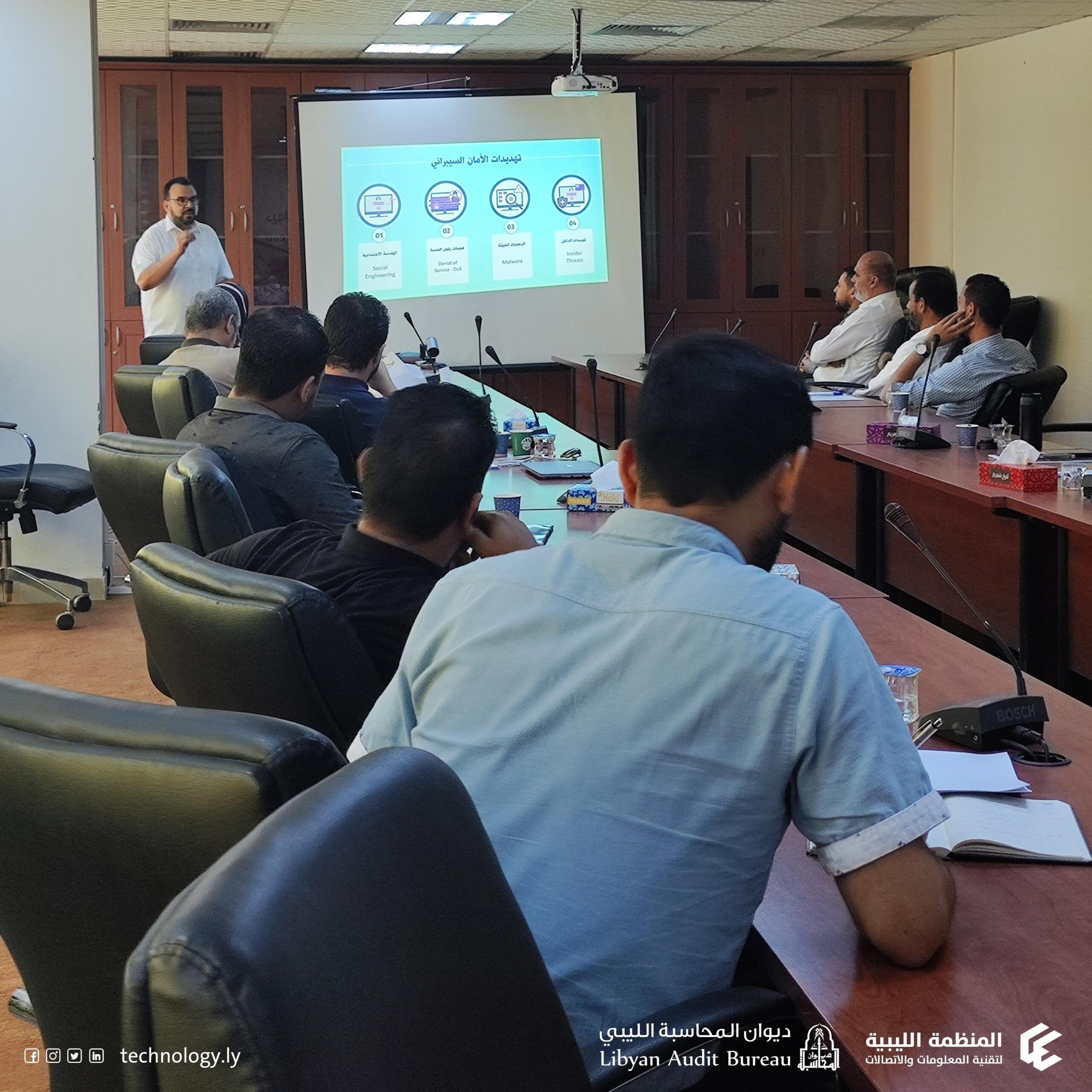
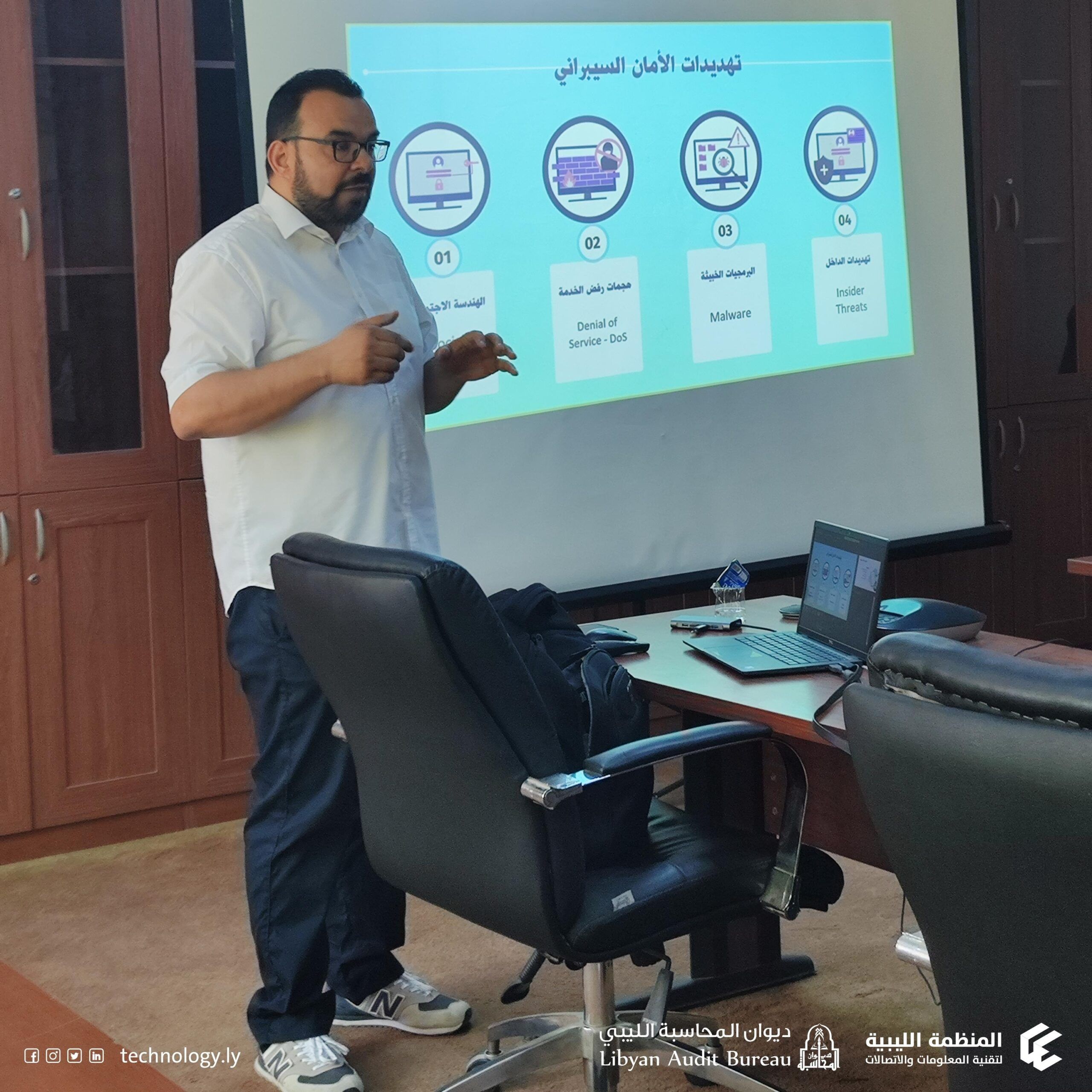
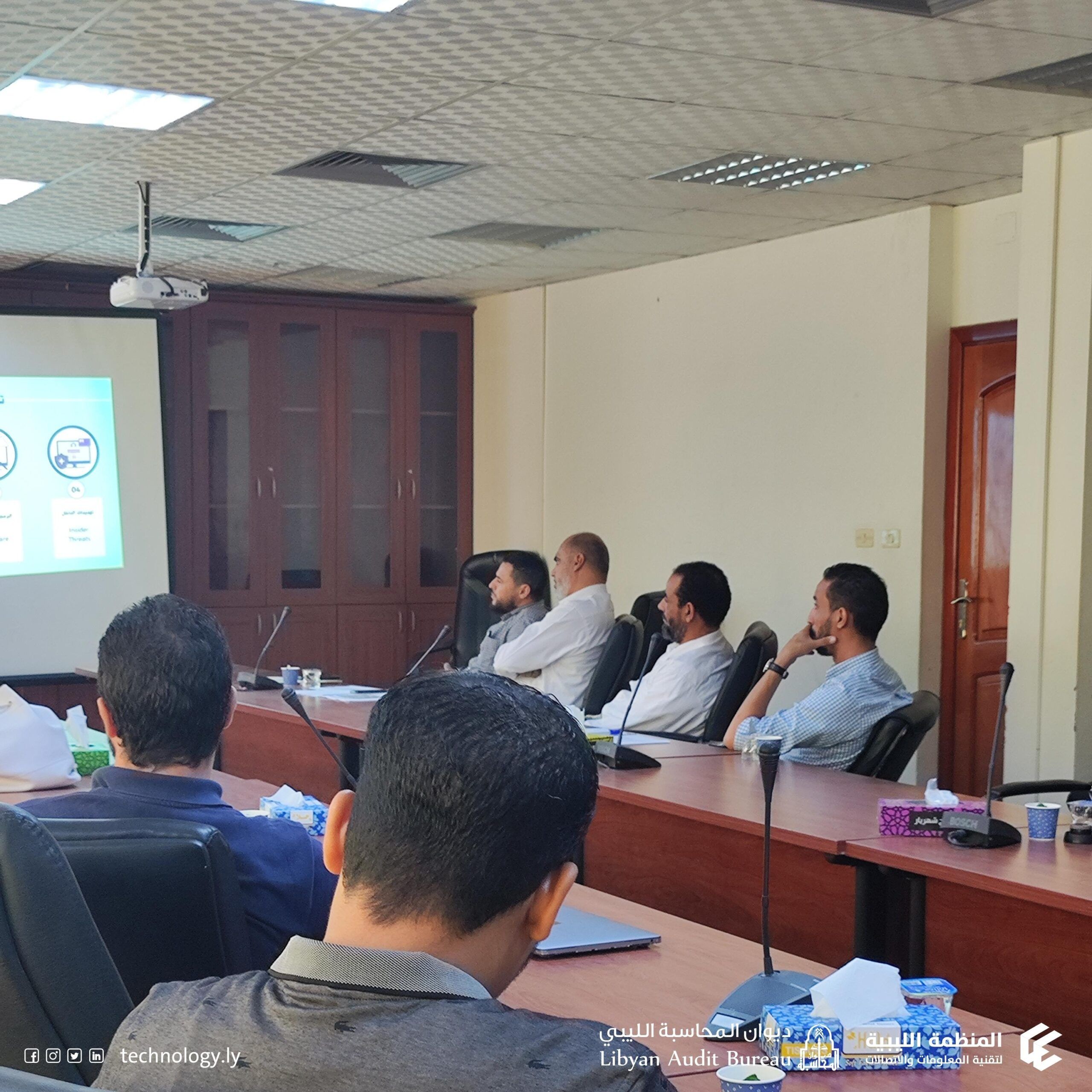
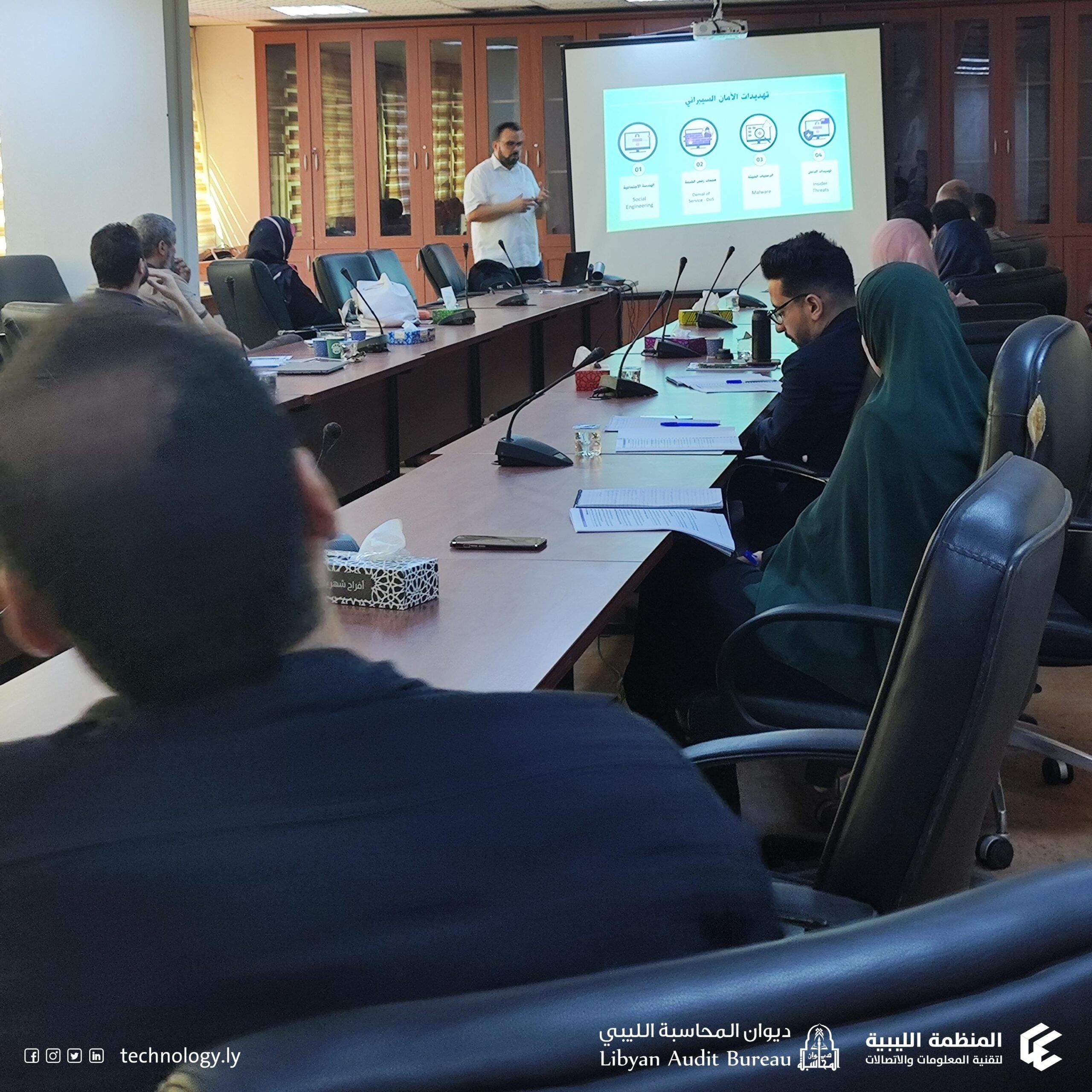
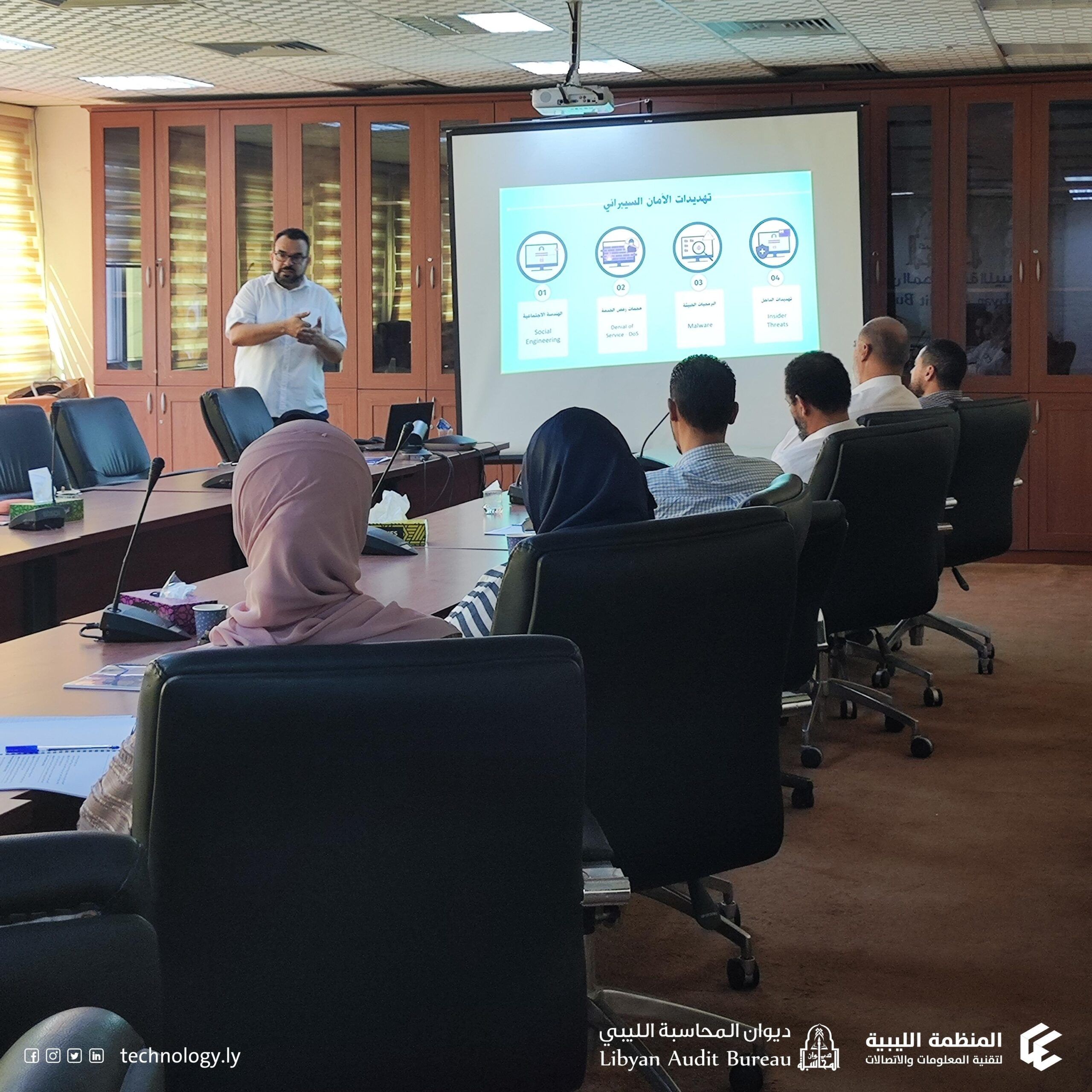
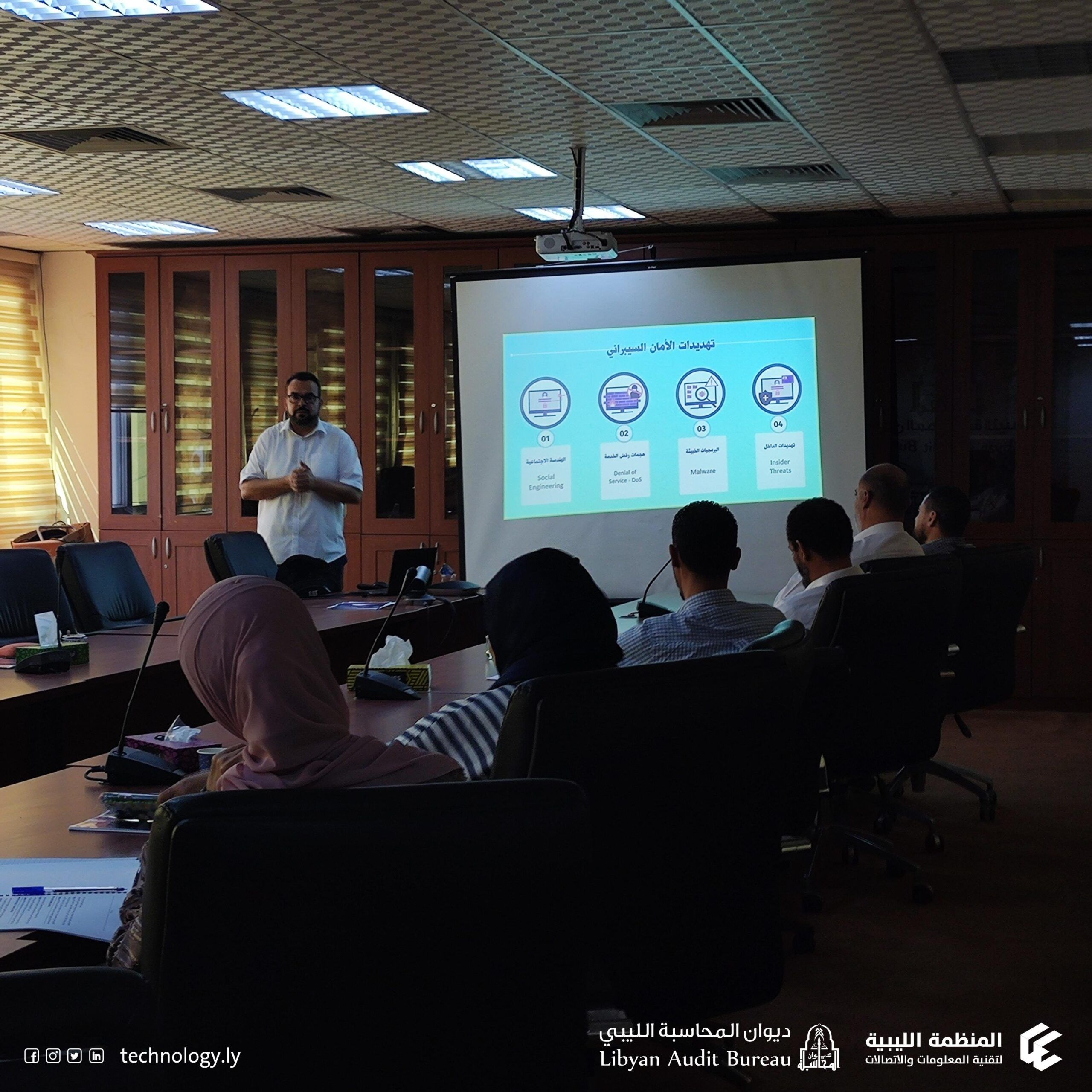


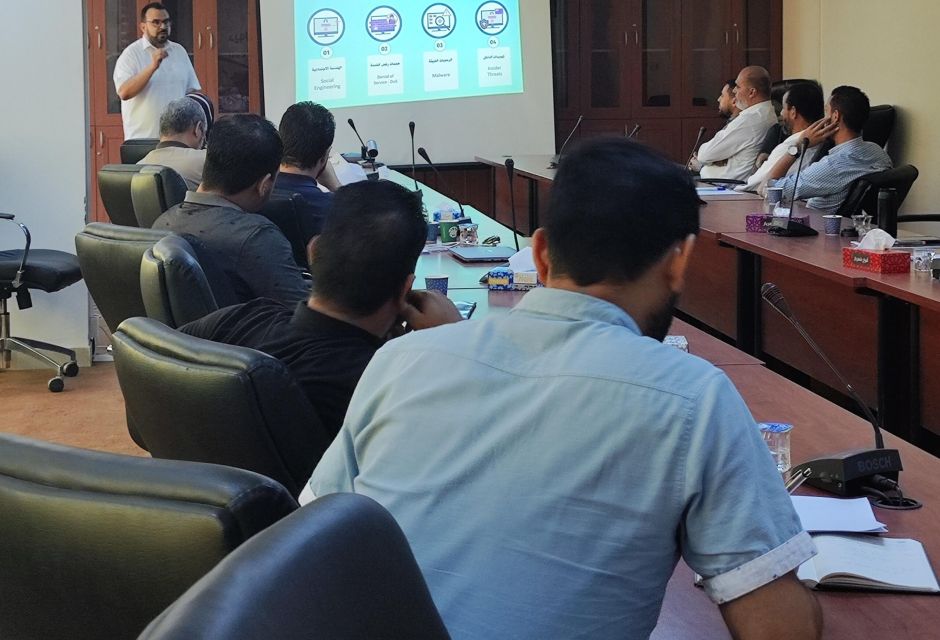
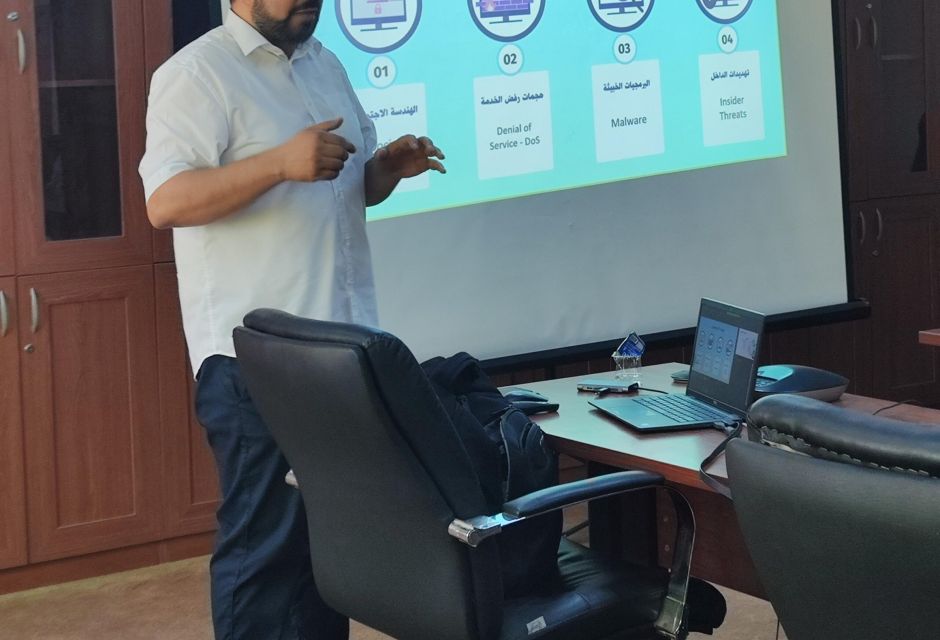


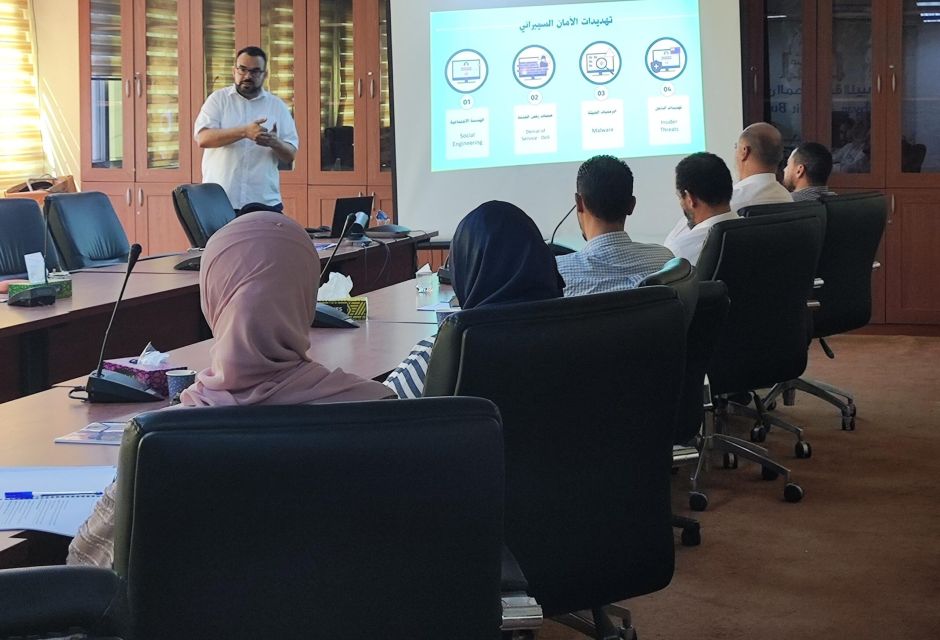
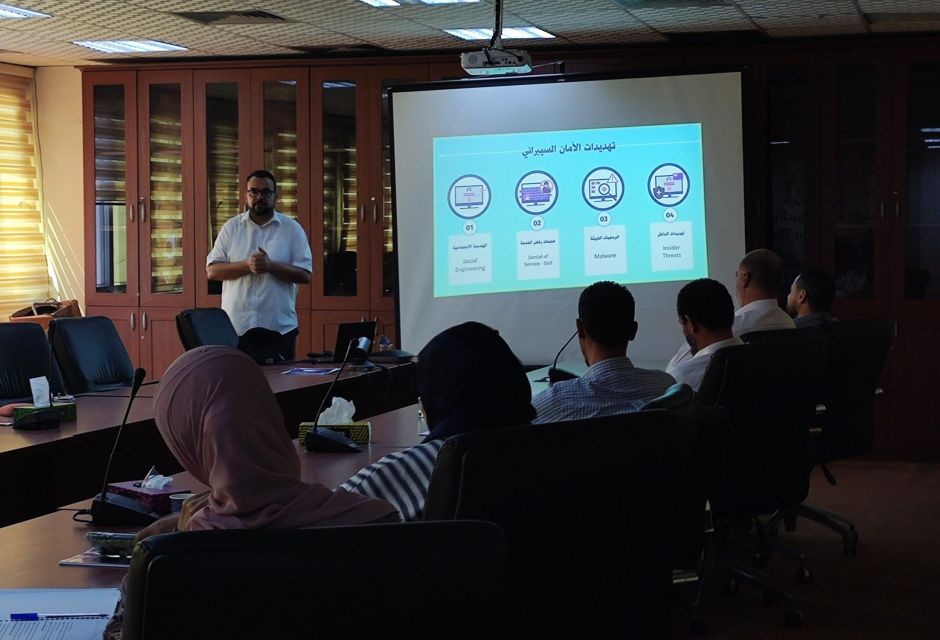
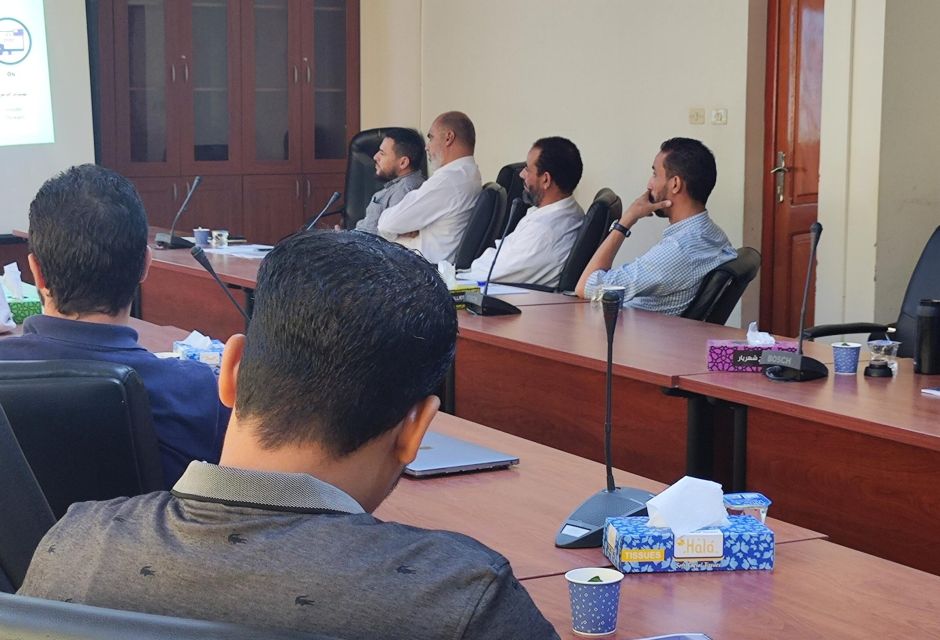

موافق